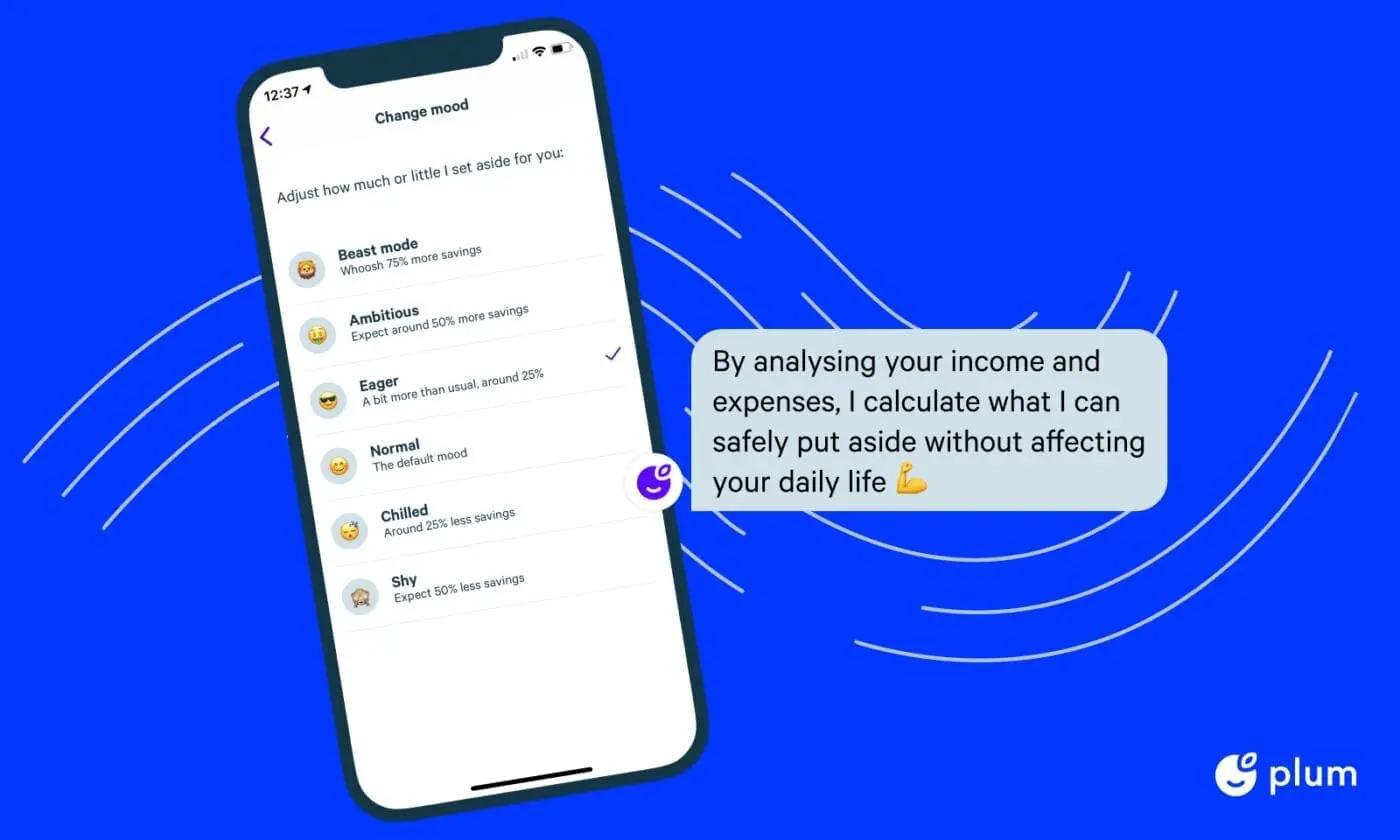
Plum’s millennial savers to shun post-pandemic spending spree
- More than half (55%) of customers, who have built up extra savings due to lockdown, are planning to hold onto their extra savings rather than spend them.
- Of those holding onto their extra savings, nearly two thirds (58%) of customers want to put the money towards achieving a long-term goal, such as a house deposit.
- The majority (54%) of customers plan to maintain this momentum by saving more once life returns to normal.
- $500m has been saved in Plum by customers since its launch in 2017.
Fast-growing Fintech Plum is today releasing new research that suggests its predominantly millennial-aged savers will not be tempted to part with their cash quickly in a post-pandemic spending spree. Many plan to hold onto the extra savings they have accumulated during the COVID-19 lockdowns, and are keen to keep saving more even when life returns to normal.
Half of the customers surveyed saw an increase in their savings during the pandemic
Plum is Europe’s most comprehensive money management app, having saved a total of $500m for 1.5m customers since its launch in 2017. Half of the customers surveyed saw an increase in their savings during the pandemic. In keeping with the wider “savings boom” experienced by much of the UK*. Although three-quarters of customers consider themselves to be “bad” or “average” at saving. Plum’s AI was able to adjust to changes in spending patterns and automatically adapt how much money was aside for them when the pandemic hit**.
Plum’s research indicates that more than half (55%) of customers now benefiting from extra savings built up during the pandemic, will not spend this money in the next 12 months.
Among those customers who intend to hold onto their extra savings. Nearly two thirds (58%) said that they plan to work towards a specific long-term financial goal, such as a deposit for a home.
Saving up for an emergency fund was the second most frequent response (27%), followed by putting the money directly into long-term investments or a pension (15%).
Learn how to manage your finances better with Plum.

Millennials are prioritising building their own long-term financial resilience
Taken together, these figures suggest that the pandemic has led to a shift in attitudes towards money among millennials, who are willing to forgo short-term gratification in favour of increased future security. It also suggests that millennials are prioritising building their own long-term financial resilience. Rather than pumping their money back into the economy.
Data from customers already committed to spending their lockdown savings further supports this change in behavioural patterns. 60% of customers who plan to spend their extra pandemic savings wish to achieve a long-term goal. With the money being spent on a specific one-time purchase, such as a holiday or car. This signals that, for the most part, millennials are unwilling to live to the maximum of their spending power. Carefully considering purchases against achieving their financial goals in 2021.
Many plan to maintain savings habits they developed during the pandemic
Plum’s data also reveals that many millennials plan to maintain the savings habits they have developed during the pandemic once life returns to normal. 54% of those surveyed reported that they intend to save more after lockdown, while over a quarter (26%) plan on saving “considerably more”. This could be an early indication that Britain’s transformation into a “nation of savers” will not be short-lived, despite the Bank of England’s predictions of a consumer spending splurge***.
Saving is now about building up your lifetime wealth, which Plum has been championing for years
Victor Trokoudes, CEO and Co-Founder of Plum
Victor Trokoudes, CEO and Co-Founder of Plum, comments: “This is excellent news for our customers’ pockets, but it may come as a blow to the Treasury as it looks to stimulate the country’s economic rebound. A seismic change in the way the country thinks about its money is in motion. For too long, saving has been linked to the idea of depriving yourself of something, but this is no longer the case. Saving is now about building up your lifetime wealth, which Plum has been championing for years. We’re pleased to see that our product is having a positive impact on our customers’ financial lives during what’s been a very challenging and surreal time. It’ll be interesting to see whether our customers’ actions match up with their intentions post-pandemic. Will the incentives and opportunities to spend prove too hard to resist? I look forward to seeing how the situation develops”.
*Since the beginning of the coronavirus pandemic, total household savings have increased due to a fall in spending on non-essential items over lockdown. The household savings ratio (household savings as a proportion of household disposable income) increased from 9.6% in Q1 2020 to 29.1% in Q2 of 2020, a record high since the series began in 1987. Deposits in bank accounts increased by £44.6 billion in Q2 2020. Source: Coronavirus impact on household savings and debt, House of Commons, 13th January 2021.
**Unless stated otherwise, all data is internal Plum data. The sample size surveyed consisted of 1,243 customers and the survey was conducted in March 2021. The average age of respondents was 32 and the gender split was 37:63 male: female.
***Consumption is expected to recover materially in the near term as restrictions ease and is supported by households spending around 5% of the savings accumulated during the pandemic. Source: Monetary Policy Policy Report, Bank of England, 4th February 2021.

Plum is the ultimate money management app.
Founded in 2016 by Victor Trokoudes (ex-TransferWise) and Alex Michael (ex-TicTail), Plum’s mission is to banish financial instability and make everyone better off over their lifetime. The Plum app acts as a brain by automating the parts of personal finance that people find difficult or don’t have time for. It sets aside what each person can afford, finds better deals on everyday bills, offers useful spending insights and provides a simple platform for easy-access investments.
